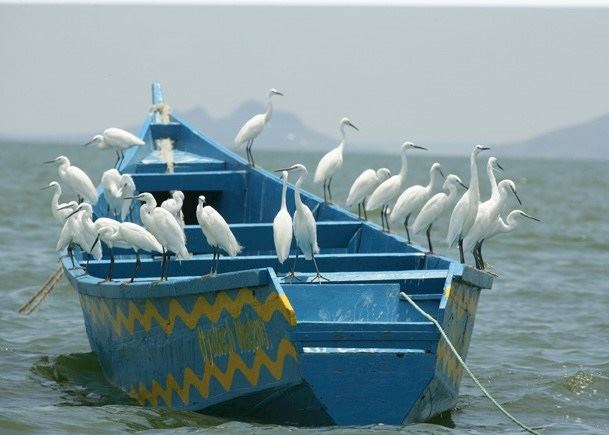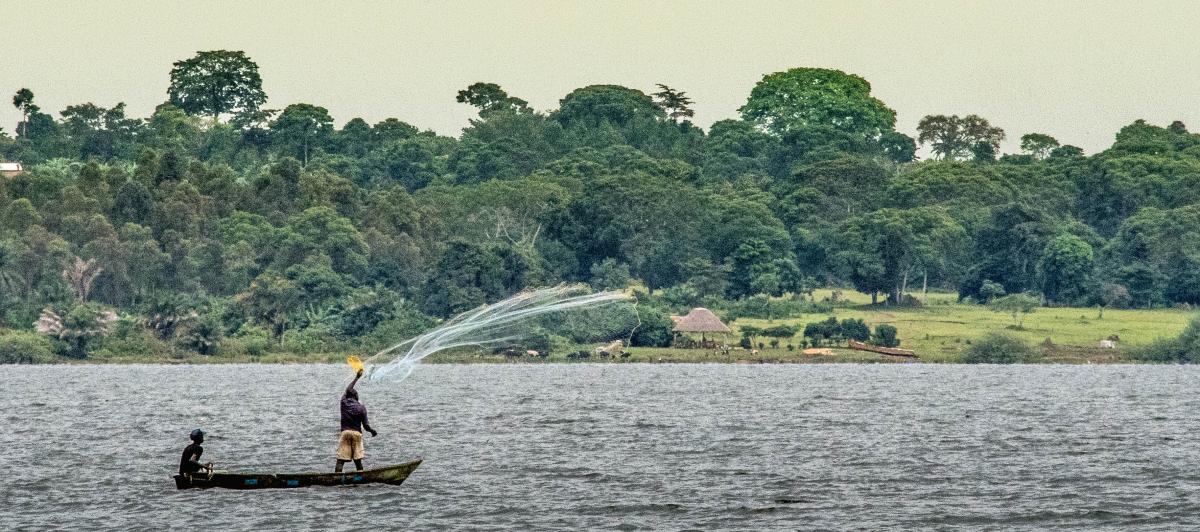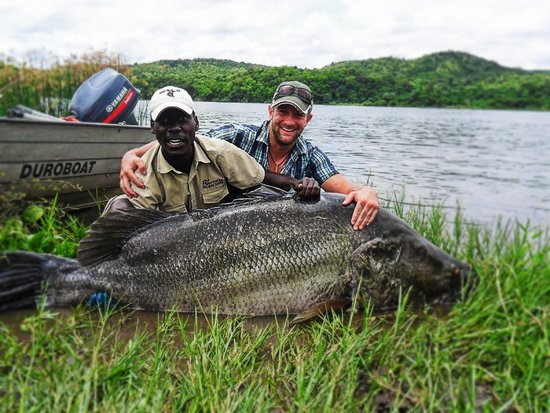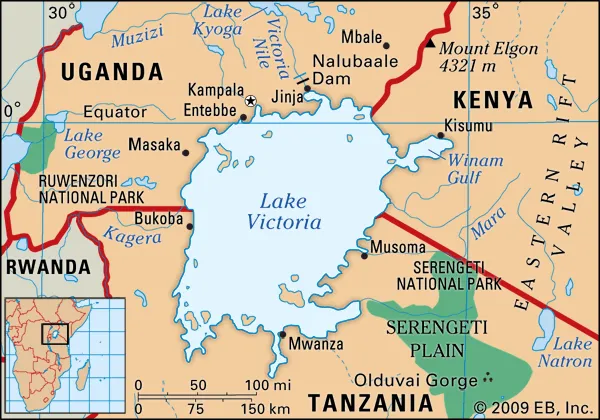Lake Victoria “enyanja nalubale” is in the heart of East Africa, a captivating natural wonder and an essential lifeline for the region’s inhabitants. With its vast expanse, breathtaking beauty, and ecological significance, Lake Victoria plays a crucial role in shaping the lives, economies, and ecosystems of the countries that surround it. Explore the fascinating aspects of Lake Victoria, from its formation, ecological significance, cultural importance and the challenges it faces currently.

Formation and Geography:
Lake Victoria, the largest freshwater lake in Africa and the second-largest in the world, spans approximately 68,800 square kilometers. It encompasses portions of Tanzania, Uganda, and Kenya, as Uganda takes the biggest share. The lake was formed over 400,000 years ago through geological processes, including tectonic activity and volcanic activity. Surrounded by lush greenery, rolling hills, and sandy beaches, Lake Victoria creates a mesmerizing panorama that attracts both locals and tourists alike.
Ecological Significance:
Lake Victoria is not only a sight to behold but also a thriving ecosystem of incredible biodiversity. The lake is home to a staggering variety of plant and animal species, many of which are endemic to the region. Its waters are teeming with more than 500 species of fish, including the iconic Nile perch, which has become an important commercial resource. The lake and its surrounding wetlands also serve as habitats for numerous bird species, such as pelicans, cormorants, and fish eagles. Moreover, Lake Victoria plays a vital role in regulating the regional climate, influencing rainfall patterns and temperature distribution.

Economic Importance:
The lake serves as an economic lifeline for the countries bordering its shores. Fishing is a significant industry, employing thousands of people and providing a vital source of sustenance and income for local communities. The Nile perch, introduced in the 1950s, transformed the fishing industry, leading to both economic growth and ecological challenges. The lake’s waters also support agriculture, transportation, and hydropower generation, contributing to the economic development of the region.
Cultural Significance:
Lake Victoria holds immense cultural significance for the communities residing along its banks. It has been a source of inspiration for traditional folklore, music, and art. The lake forms a natural boundary between different ethnic groups and has facilitated cultural exchange and trade for centuries. The fishing communities have developed unique practices and traditions that revolve around the lake, celebrating its abundance and acknowledging its power. Furthermore, the lake has become a hub for tourism, attracting visitors who seek to explore its beauty and engage with the local cultures.

Environmental Challenges:
While Lake Victoria is a jewel in East Africa, it faces significant environmental challenges. Pollution, overfishing, deforestation, and the introduction of invasive species threaten its delicate balance. Rapid population growth in the surrounding areas has increased the pressure on the lake’s resources. This leads to water pollution from industrial and domestic waste. These challenges necessitate concerted efforts from governments, local communities, and international organizations to ensure the sustainable management and preservation of Lake Victoria for future generations.

Conclusion:
Lake Victoria’s ecological significance and cultural heritage holds a special place in the hearts of those who live nearby. The visitors who experience its grandeur also testify the greatness of this natural beauty. As a vital natural resource, the lake’s sustainability and protection are paramount. By addressing the environmental challenges and promoting responsible practices, we can ensure the preservation of Lake Victoria. We can continue enriching the lives of the people, supporting thriving ecosystems, and captivating the world with its timeless allure.







